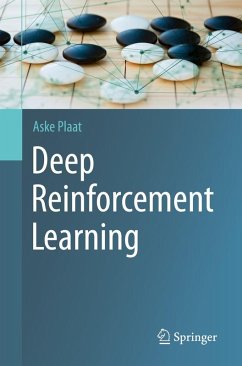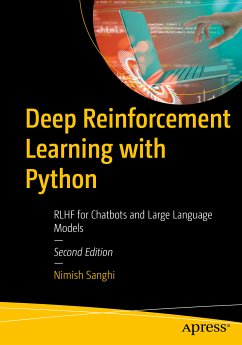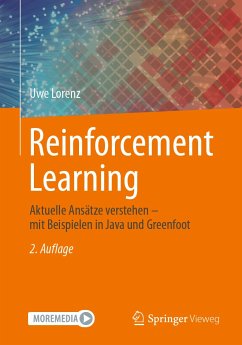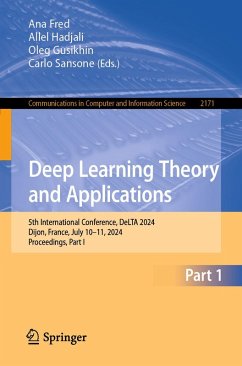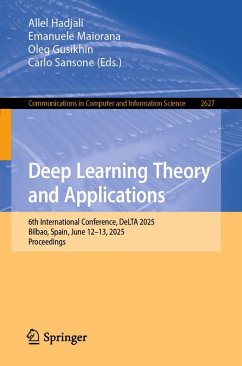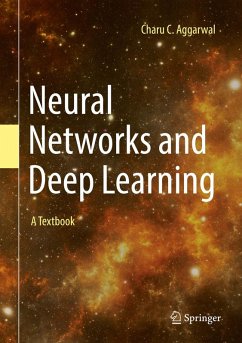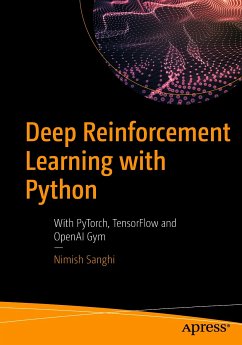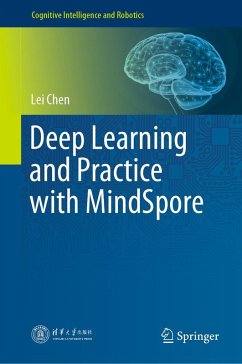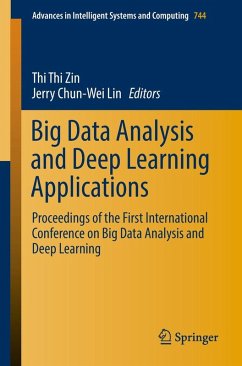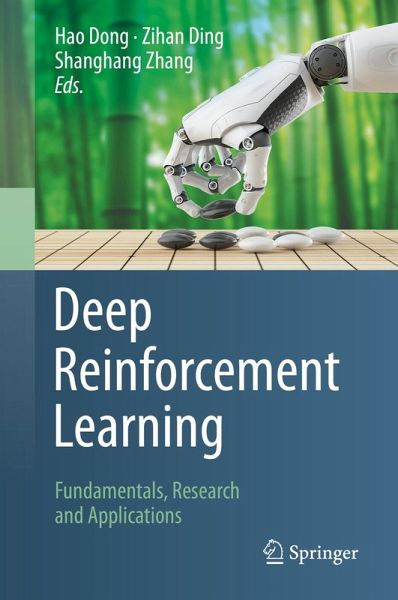
Deep Reinforcement Learning (eBook, PDF)
Fundamentals, Research and Applications
Redaktion: Dong, Hao; Zhang, Shanghang; Ding, Zihan
Versandkostenfrei!
Sofort per Download lieferbar
136,95 €
inkl. MwSt.
Weitere Ausgaben:

PAYBACK Punkte
68 °P sammeln!
Deep reinforcement learning (DRL) is the combination of reinforcement learning (RL) and deep learning. It has been able to solve a wide range of complex decision-making tasks that were previously out of reach for a machine, and famously contributed to the success of AlphaGo. Furthermore, it opens up numerous new applications in domains such as healthcare, robotics, smart grids and finance.Divided into three main parts, this book provides a comprehensive and self-contained introduction to DRL. The first part introduces the foundations of deep learning, reinforcement learning (RL) and widely use...
Deep reinforcement learning (DRL) is the combination of reinforcement learning (RL) and deep learning. It has been able to solve a wide range of complex decision-making tasks that were previously out of reach for a machine, and famously contributed to the success of AlphaGo. Furthermore, it opens up numerous new applications in domains such as healthcare, robotics, smart grids and finance.
Divided into three main parts, this book provides a comprehensive and self-contained introduction to DRL. The first part introduces the foundations of deep learning, reinforcement learning (RL) and widely used deep RL methods and discusses their implementation. The second part covers selected DRL research topics, which are useful for those wanting to specialize in DRL research. To help readers gain a deep understanding of DRL and quickly apply the techniques in practice, the third part presents mass applications, such as the intelligent transportation system and learning to run, with detailedexplanations.
The book is intended for computer science students, both undergraduate and postgraduate, who would like to learn DRL from scratch, practice its implementation, and explore the research topics. It also appeals to engineers and practitioners who do not have strong machine learning background, but want to quickly understand how DRL works and use the techniques in their applications.
Divided into three main parts, this book provides a comprehensive and self-contained introduction to DRL. The first part introduces the foundations of deep learning, reinforcement learning (RL) and widely used deep RL methods and discusses their implementation. The second part covers selected DRL research topics, which are useful for those wanting to specialize in DRL research. To help readers gain a deep understanding of DRL and quickly apply the techniques in practice, the third part presents mass applications, such as the intelligent transportation system and learning to run, with detailedexplanations.
The book is intended for computer science students, both undergraduate and postgraduate, who would like to learn DRL from scratch, practice its implementation, and explore the research topics. It also appeals to engineers and practitioners who do not have strong machine learning background, but want to quickly understand how DRL works and use the techniques in their applications.
Dieser Download kann aus rechtlichen Gründen nur mit Rechnungsadresse in A, B, BG, CY, CZ, D, DK, EW, E, FIN, F, GR, HR, H, IRL, I, LT, L, LR, M, NL, PL, P, R, S, SLO, SK ausgeliefert werden.



